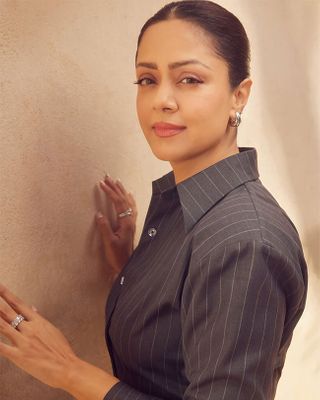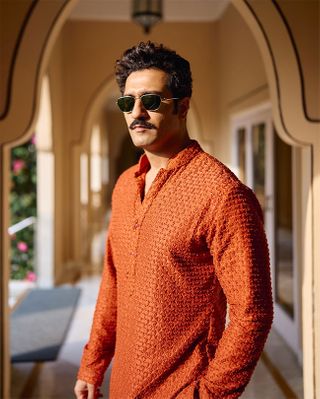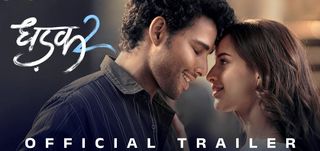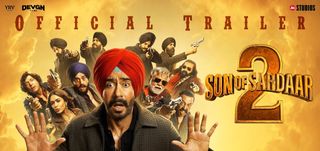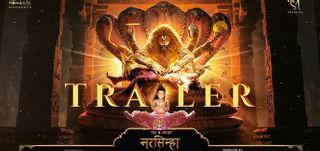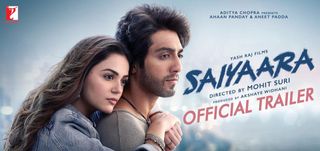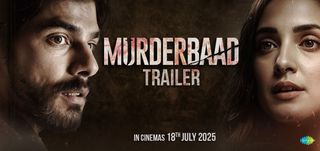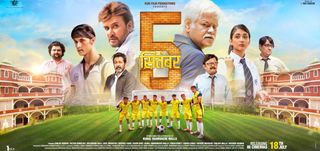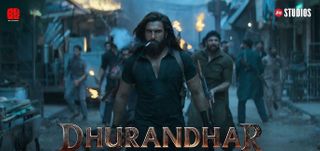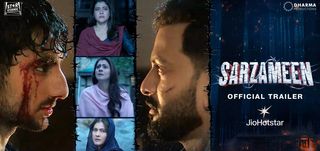
Margarita with a Straw Movie Review
Bollywood as a film industry has always been obsessed with stars and fluffy, over the top, claptrap cinema. So, 2015 has made for a year of refreshing change, with more and more grounded, realistic films finding appreciation from the right audience.
This week's Margarita with a Straw continues the winning streak, and in a big way. Writer-director Shonali Bose's award-winning film, which centers on a college student Laila in Delhi who suffers from cerebral palsy, makes for some of the most honest, uninhibited and unnerving viewing in Hindi cinema to date.
Quite a lot of films have been made on physically disabled protagonists the world over, but most end up following the same old established stereotypes religiously. In contrast, even though Margarita with a Straw's central character suffers from a similar affliction, the film is hardly about her struggles with her disease and her coming to terms with it. It doesn't play out like a Public Service Announcement about cerebral palsy, but the story of a character who happens to be suffering from it.
Instead of exploiting it's obviously sensitive subject to manipulate the audience, Shonali Bose instead focuses on Laila's sexual desires and orientation, her need to be viewed as normal as possible, and the want to explore life beyond the confines of her wheelchair. Bose explores her relationships in her day-to-day life, whether it's with her man-of-the-house mother, her Delhi University crush, or her new-found blind friend in New York.
It's one thing to move you by projecting characters and situations and by role playing. It's a completely different ballgame to affect you with the little intricacies of someone's life with little regard as to the kind of effect. Bose has no qualms about making you uncomfortable in your seat; her only aim is to just be honest with her audience and more importantly, with Laila. Margarita with a Straw is a film that isn't afraid of exploring the female body, the heartbreak when your first crush doesn't reciprocate your feelings, the intimacy of the moment when you loses your virginity, the betrayal of being cheated on, the pain of losing someone close to you.
It's heartwarming to see that in a horrendous world full of horrendous people doing horrendous things, there are those few who are willing to hold up a mirror to our messed up society and speak the uncomfortable truth. Shonali Bose now ranks among those people. Her message is that of equality, without actually being about equality. Without making out her to be a saint, by actually openly exhibiting her flaws and her vulnerabilities, she makes Laila just like one of us.
She teaches you without preaching to you, that despite any and all of her physical restrictions, Laila finds herself in much of the same situations, in much of the same relationships as us. Similar to the recent Dum Laga Ke Haisha, she brings to the fore our society's preoccupation with a person's physical attributes. The thought of being intimate with someone who doesn't match up to our preconceived standards of beauty repulses us, makes us afraid. We tend to forget that much like someone isn't appealing to us, we might just be similarly unappealing to another.
Cerebral palsy as an issue is obviously quite close to Bose's heart, and she treats it as such. But rather than treating as the biggest ill of life, she concurrently takes up the baton for the gay community, the visually-impaired community, and for cancer as a killer disease. What could've appeared as a propagandist piece of cinema, though, comes across as a slice-of-life, tug-at-your-heartstrings film, thanks to large doses of light hearted humor that manages to elicit nervous laughter on many an occasion. Bose finds the right balance between activism and entertainment, and she maintains a steady graph of excitement and thrill. Even though that implies that there are no discernible high points in the film, it also means that the film never dips and drags.
Part of the credit for that goes to the editor Monisha R Baldawa, who manages to maintain a steady pace even during the film's more emotional moments with her crisp editing. Keeping the running length down to well below 2 hours despite a myriad of talking points to put across is another mighty achievement for Baldawa that might be quite easily overlooked. The cinematography too deserves brownie points. DOP Anne Misawa collaborates well with Bose to bring her vision to life as accurately as she could. An eclectic mixture of hand-held and mounted camera work, Misawa effectively transports you into Laila's world, whether it's through tight close ups or lingering on characters that fraction of a second longer after a conversation is over. The musical score by a Mickey McCleary is not the sort you'd be listening to on headphones, but caters very well to the film's situational appeal.
Her accent may have been her biggest impediment to completely convincing performances in the past, but Kalki Koechlin puts it to ingenious use in her portrayal of Laila. In fact, her accent helps her in achieving that perfect drawl to go with her character's difficulty in speaking. It's her character's physicality, though, that makes her performance the finest by an actress in the longest time. Everything from her posture to her lower body rigidity, right down to the smallest of movement in her fingers is enacted to perfection by Kalki, that too with an effortless charm that reminds you of Eddie Redmayne's recent Oscar-winning turn as Stephen Hawking in The Theory of Everything.
Veteran actress Revathi delivers an accomplished performance as Laila's mother, who has her daughter's best interests at heart. Despite what you might typically expect from a motherly character in such a film, Revathi actually gets a meaty and layered character to sink her teeth into. And once she bites, she doesn't let go, stunning you with her fluent transition from strict to vulnerable and back again. Sayani Gupta is immensely watchable as Laila's friend from New York who she starts getting close to. Much like Kalki, the difficulty that the physicality of her blind character poses is what makes it such a worthy performance. The supporting cast is full of gleeful little performances by captivating actors.
Margarita with a Straw is that rare film that reaches for the stars with its feet firmly on the ground, or in Laila's case, with her wheels firmly grounded. Honest, soaring, eye-opening and all the while entertaining, Shonali Bose's little gem of a film is a huge step forward for Bollywood when it comes to owning up to the realities and harshness of life with a smile. Well worth the price of your admission ticket, maybe even a second time around, take in the rich experience that the film offers with large gulps through your life-sized straw.







